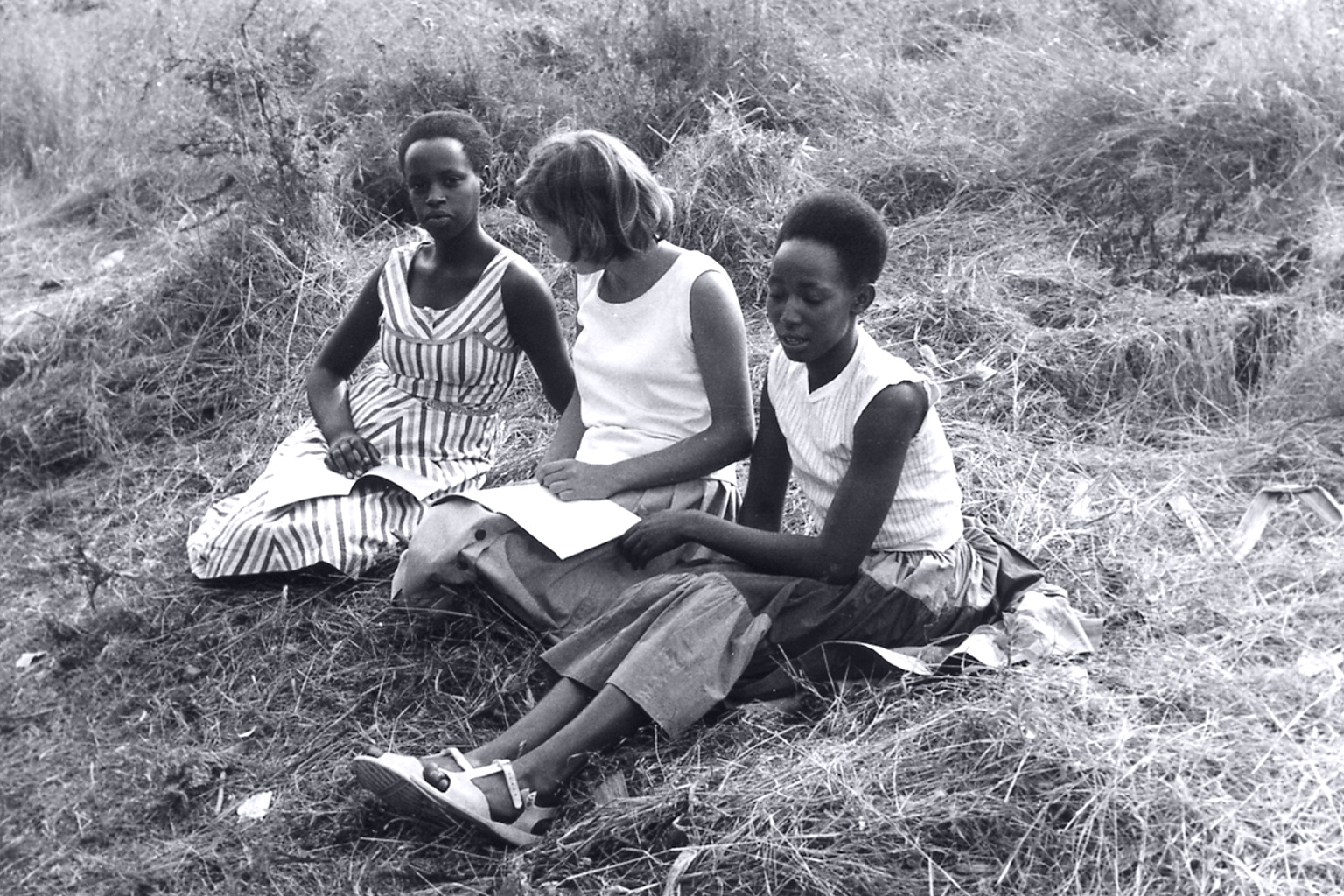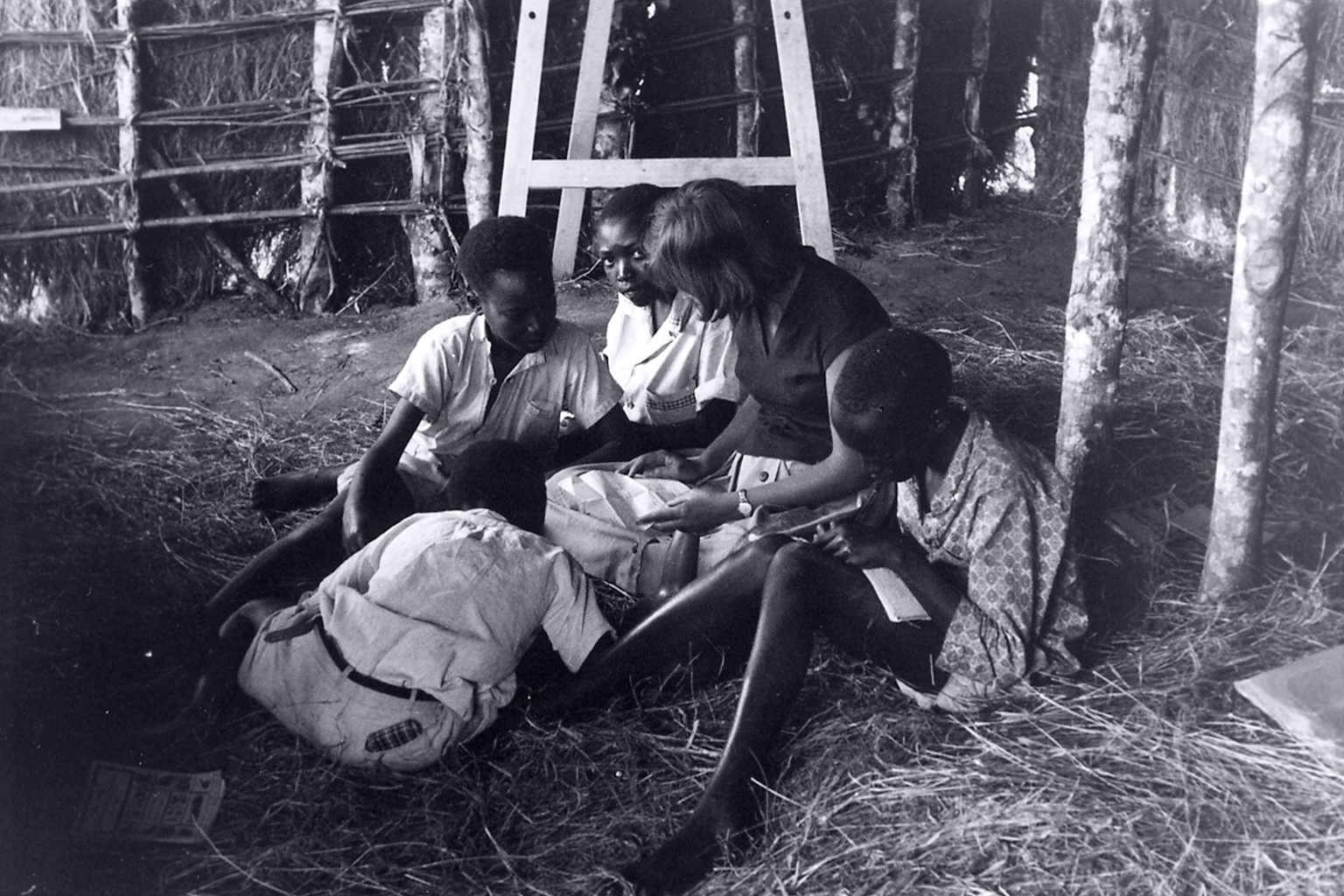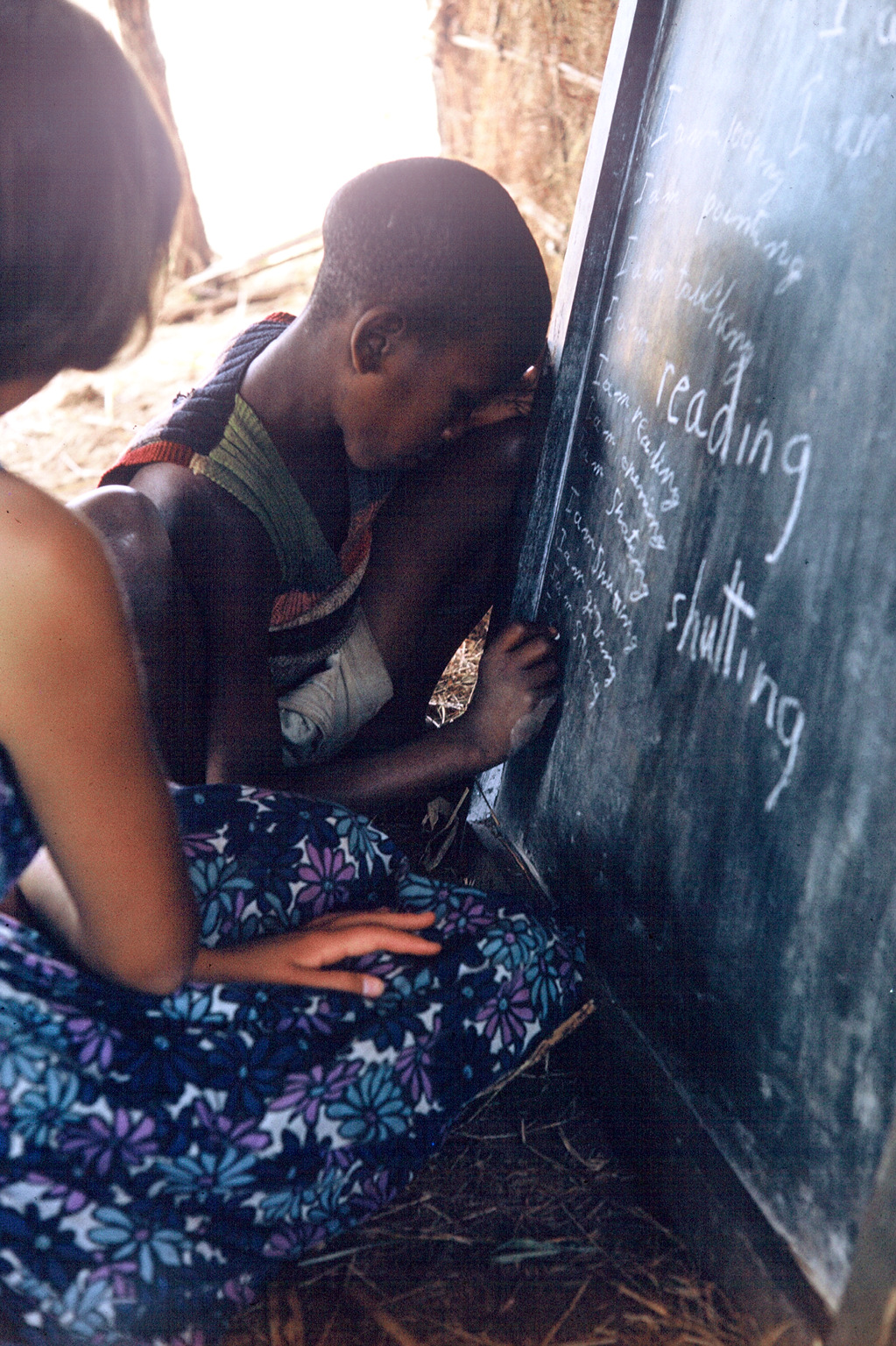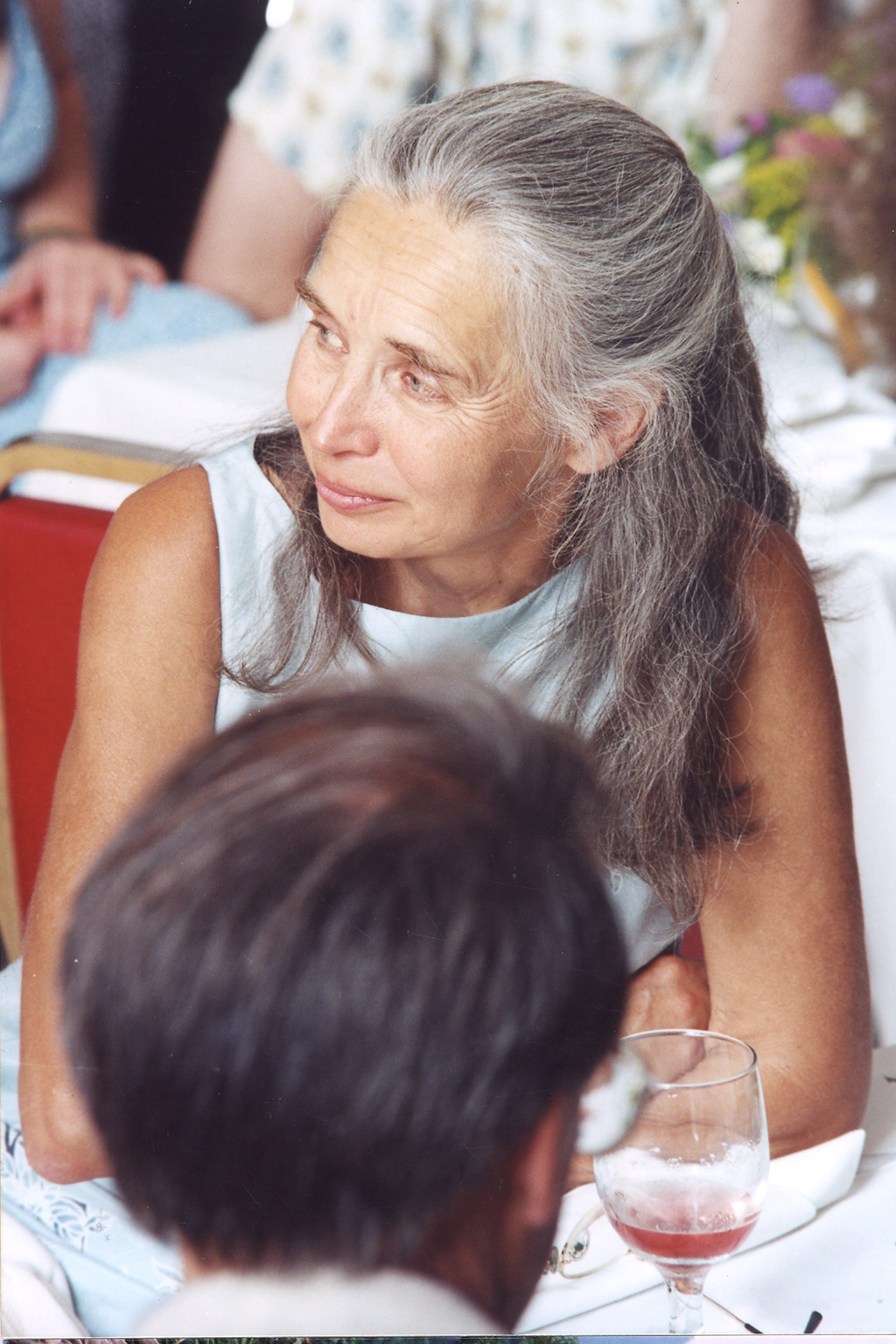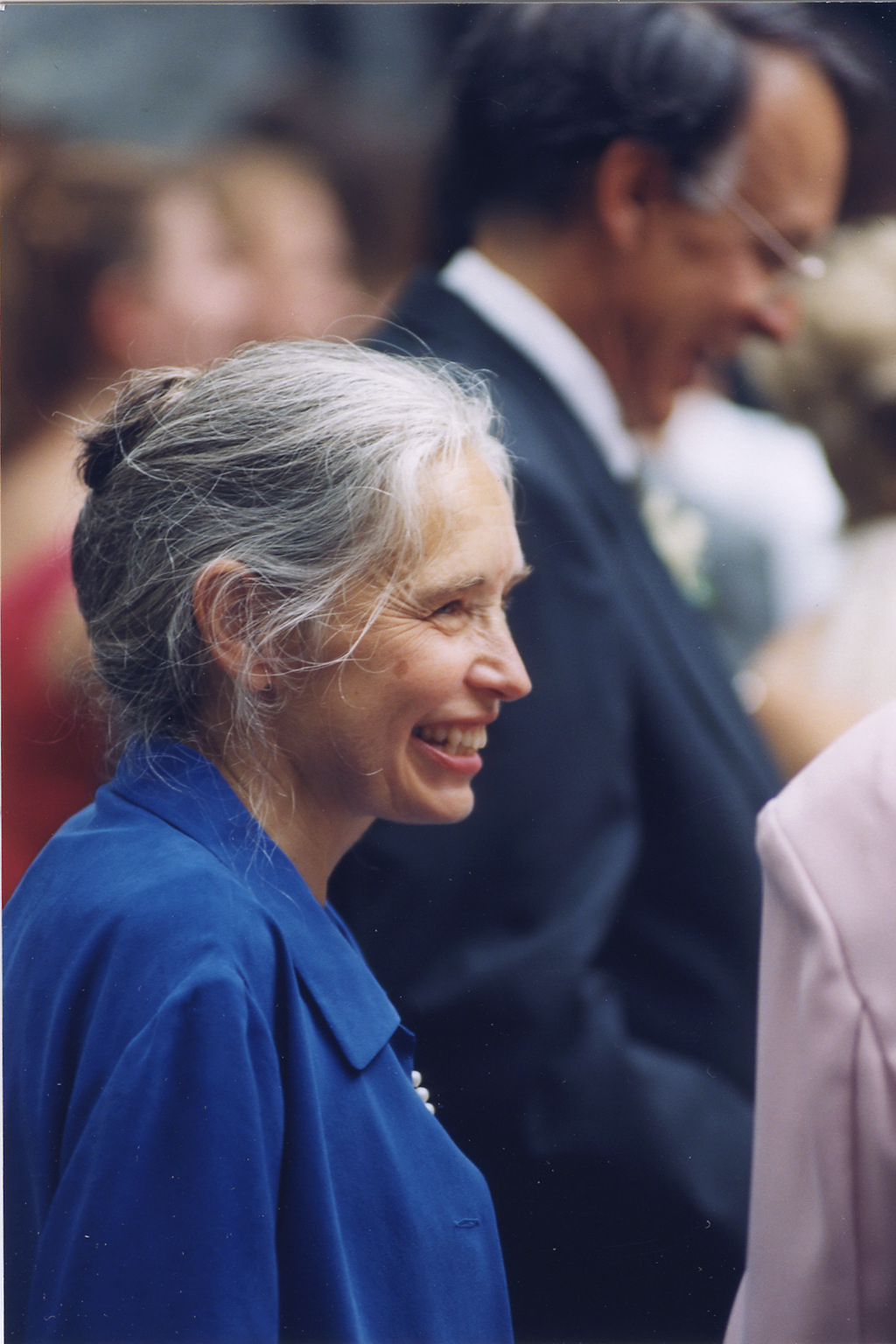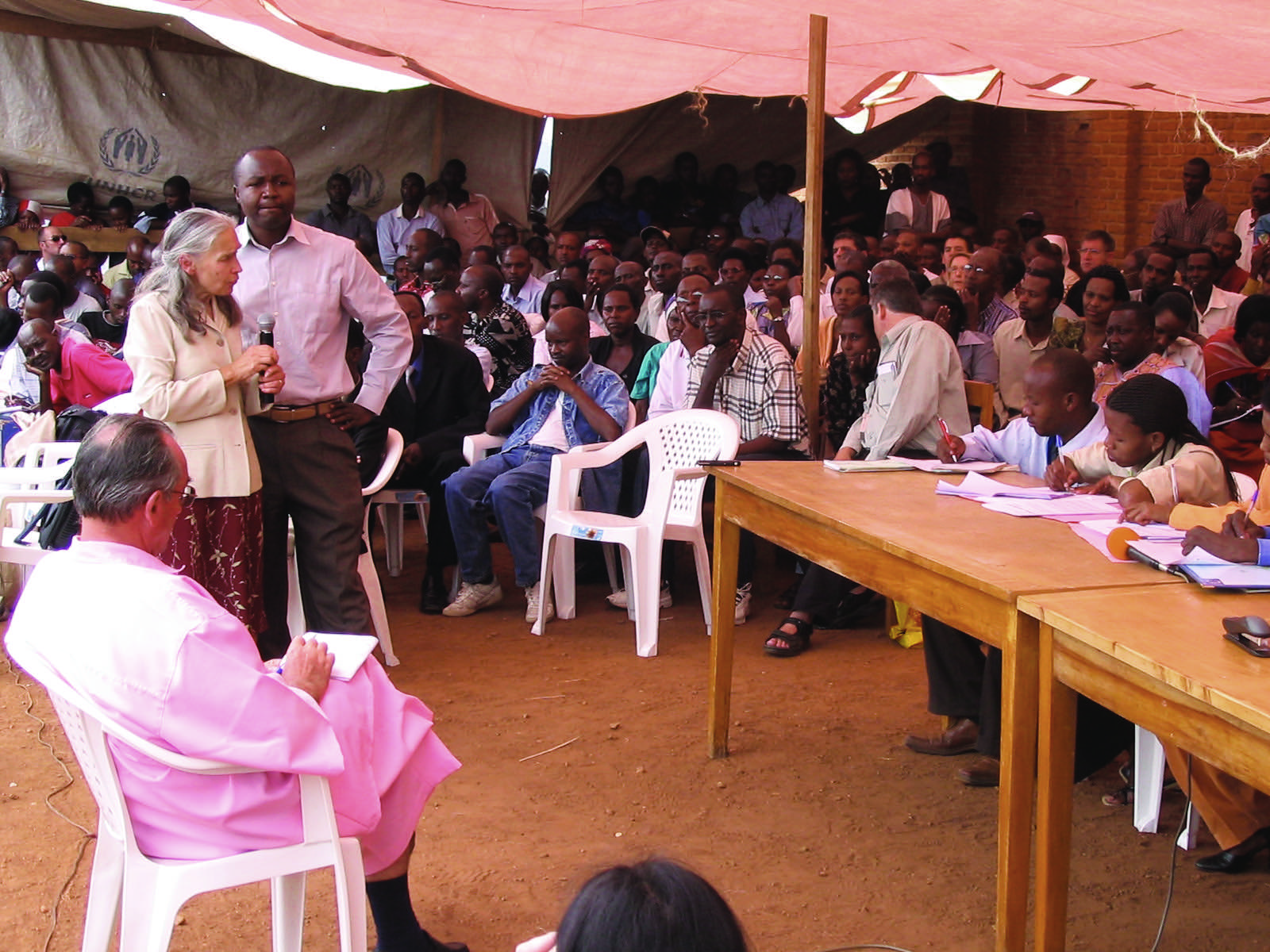Life and Legacy
Human Rights Watch called Dr. Alison Des Forges “one of the greatest advocates for human rights in our time.” Each year, that non-governmental organization confers, in her name, an “Award for Extraordinary Activism” on a meritorious individual chosen globally. Alison was a leading historian of Rwanda, a recipient of a MacArthur Fellowship - known informally as a “Genius” Award - and an inspirational advocate for human rights in Rwanda and around the world. In her private life, she was a loving wife, mother, and grandmother. She was also a surrogate mother to a Rwandan brother and sister who joined her family in Buffalo, New York to further their studies, and a maternal figure for several other young people in need of help. She was a compassionate and unassuming human being with a great intellect and a passion for justice, one who made a real difference in the world.
Scholar
As a junior at Radcliffe College in the 1960s, Alison volunteered to teach English in a camp for Rwandan refugees in Tanganyika, a project that prefigured the Peace Corps. In 1972, she earned a doctorate in African History at Yale University with a dissertation titled “Defeat is the Only Bad News: Rwanda under Musiinga, 1898-1931.” In Buffalo, she devoted two decades to volunteering to improve public education in the city. Over the years, she taught at the University at Buffalo, SUNY College at Geneseo, SUNY Oswego, the University of California, Berkeley and Beijing University.
As a scholar activist and Senior Advisor to the Africa Division of Human Rights Watch, Alison authored one of the most comprehensive, judicious, and respected accounts of the Rwandan genocide, titled Leave None to Tell the Story: Genocide in Rwanda (1999). In the book, she argued that the genocide was organized by the Hutu-dominated Rwandan government at the time, and was not a spontaneous outbreak of long-standing tribal animosities. The book was a landmark account of the genocide which The Economist and The New York Times both described as definitive. It appeared simultaneously in French, and was soon translated into German and Kinyarwanda. It served as an authoritative reference work at the United Nations International Criminal Tribunal for Rwanda (ICTR), and won prizes in Germany and Austria. Her revised doctoral dissertation, titled “Defeat is the Only Bad News: Rwanda under Musiinga, 1989-1931,” and a conference volume dedicated to her memory, titled Remaking Rwanda: State Building and Human Rights after Mass Violence, were published posthumously in 2011 by Wisconsin University Press.
Vimeo interview, “Alison Des Forges: Hutu and Tutsi,” by Dave Fullerton, September 24, 2010.
Activist
In 1992, Alison co-chaired an International Commission to investigate human rights abuses in Rwanda and published a report warning of the early signs of genocide. When the genocide began in 1994, she worked tirelessly to save people and to exhort leaders in the world community to stop the carnage. Her tireless efforts to awaken the international community to the horrors of that event earned her a MacArthur Fellowship in 1999. In the aftermath, she served as an expert witness at trials of the perpetrators in Canada, Belgium, and Switzerland. She testified at length at eleven trials of the United Nations International Criminal Tribunal for Rwanda (ICTR), which met in Arusha, Tanzania. She also provided evidence about the Rwandan genocide to panels of the French National Assembly, the Belgian Senate, the British Parliament, the U.S. Congress, the Organization of African Unity, and the United Nations. It is widely recognized that Alison was a major force behind the successful prosecution of those who masterminded the Rwandan genocide. She was also a leading critic of those who committed war crimes and crimes against humanity in the course of bringing the genocide to an end.
“There was no one who knew more and did more to document the genocide and to help bring the perpetrators to justice ”
Tragic End
On February 12, 2009, the crash of Continental Connection Flight 3407 from Newark, New Jersey, took the lives of fifty people, including that of Alison Des Forges. She was on her way home after testifying before the British Parliament.
She worked at Human Rights Watch on behalf of the peoples of central Africa, eschewing power politics, and economic and cultural relativism. She believed strongly that justice is not only possible; it is also the only sound basis for reconciliation. In her last days, she was working with others on several projects, including persuading the United Nations International Criminal Tribunal for Rwanda to prosecute members of the current Rwandan government who committed war crimes and crimes against humanity during their rise to power.
~~~
Since the February 12, 2009 crash of Continental Flight 3407, the families of the victims have dedicated themselves to promoting aviation safety. The extraordinary legislative and policy achievements of these family members as well as tributes to the victims are documented on the 3407 Memorial website, which serves as both a memorial to the lives lost as well as a reference for aviation safety.
